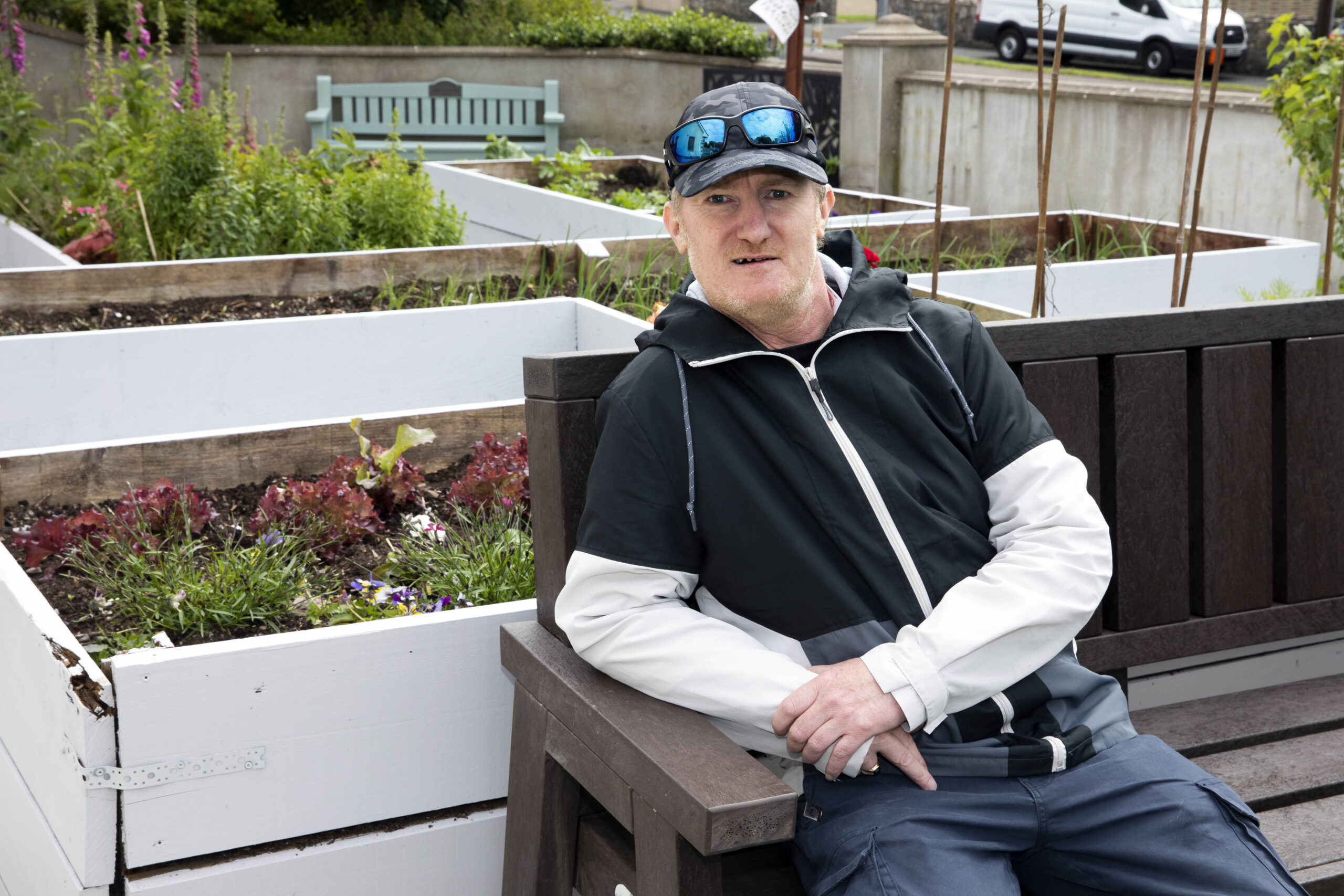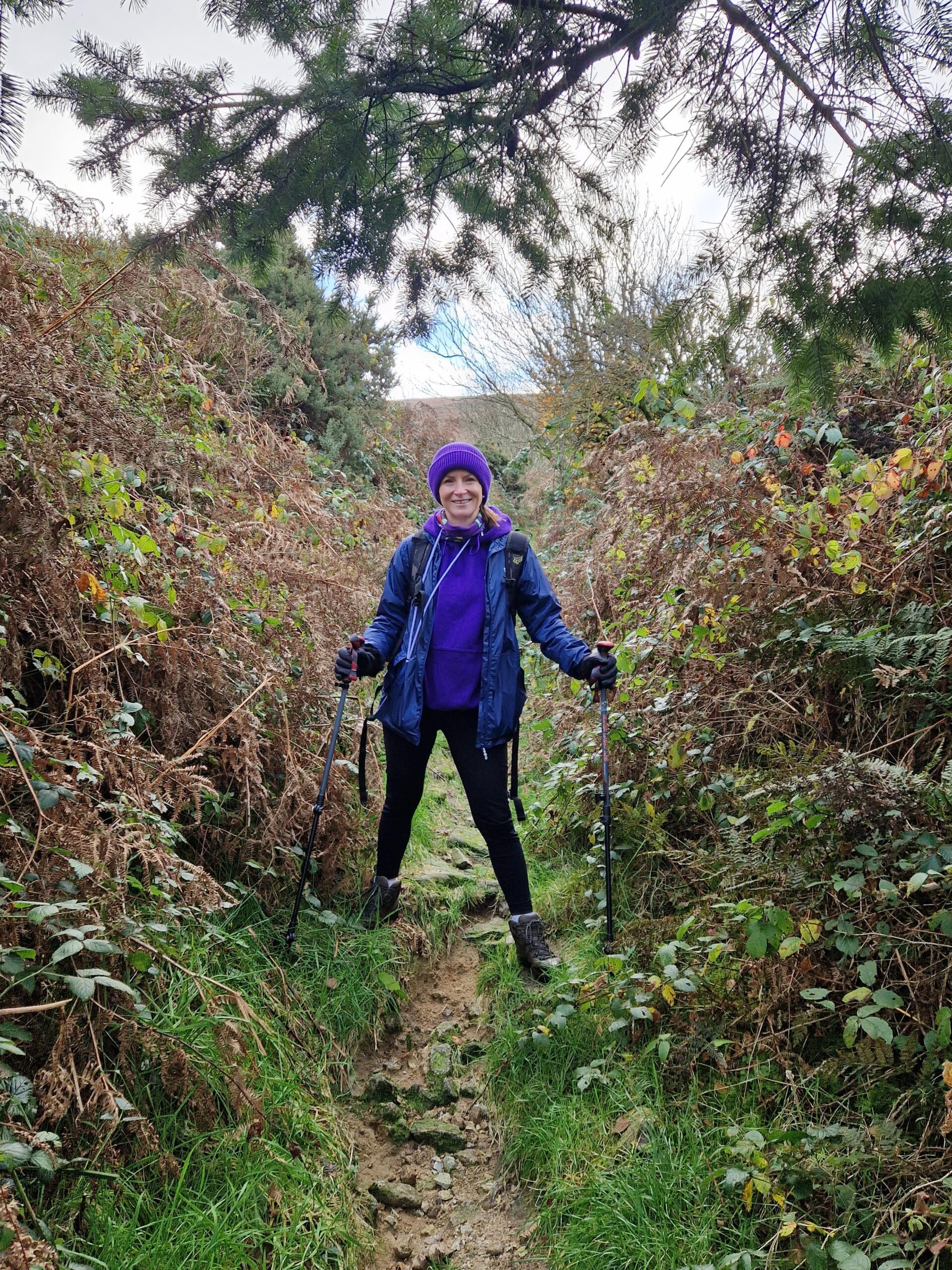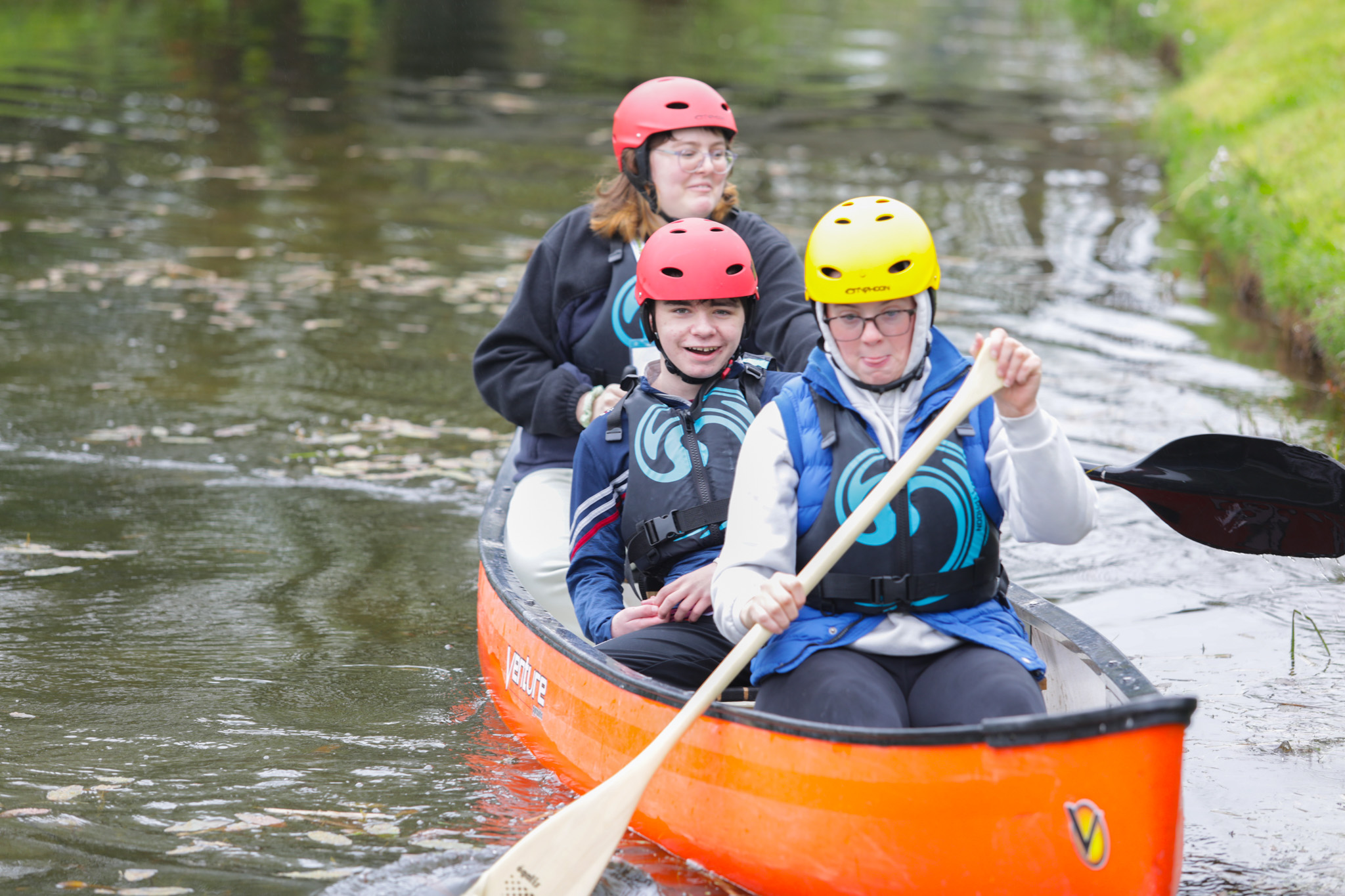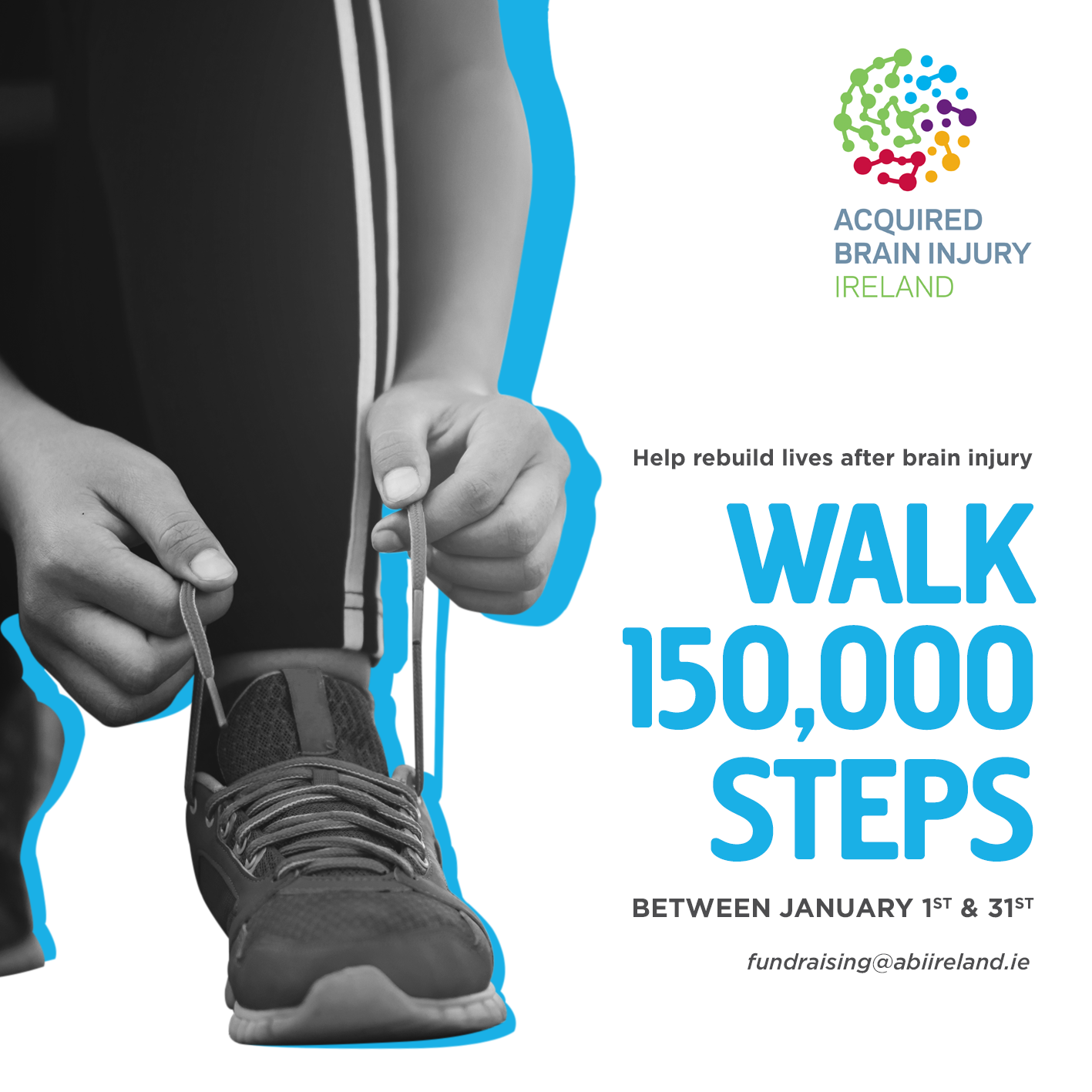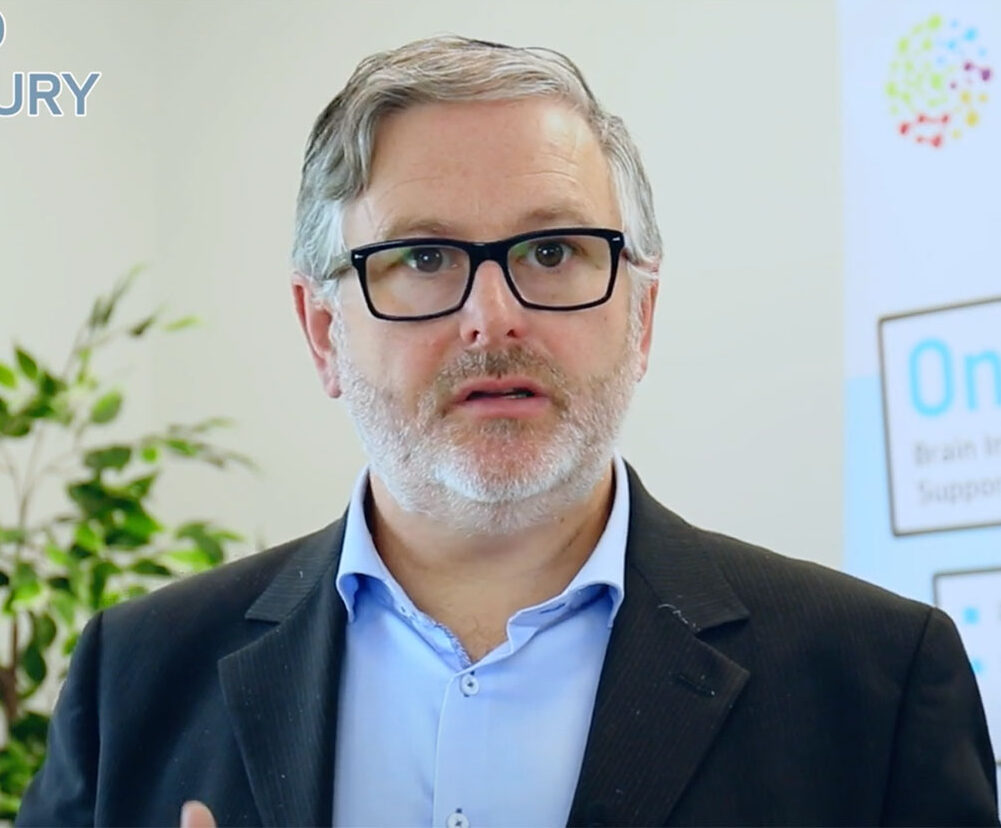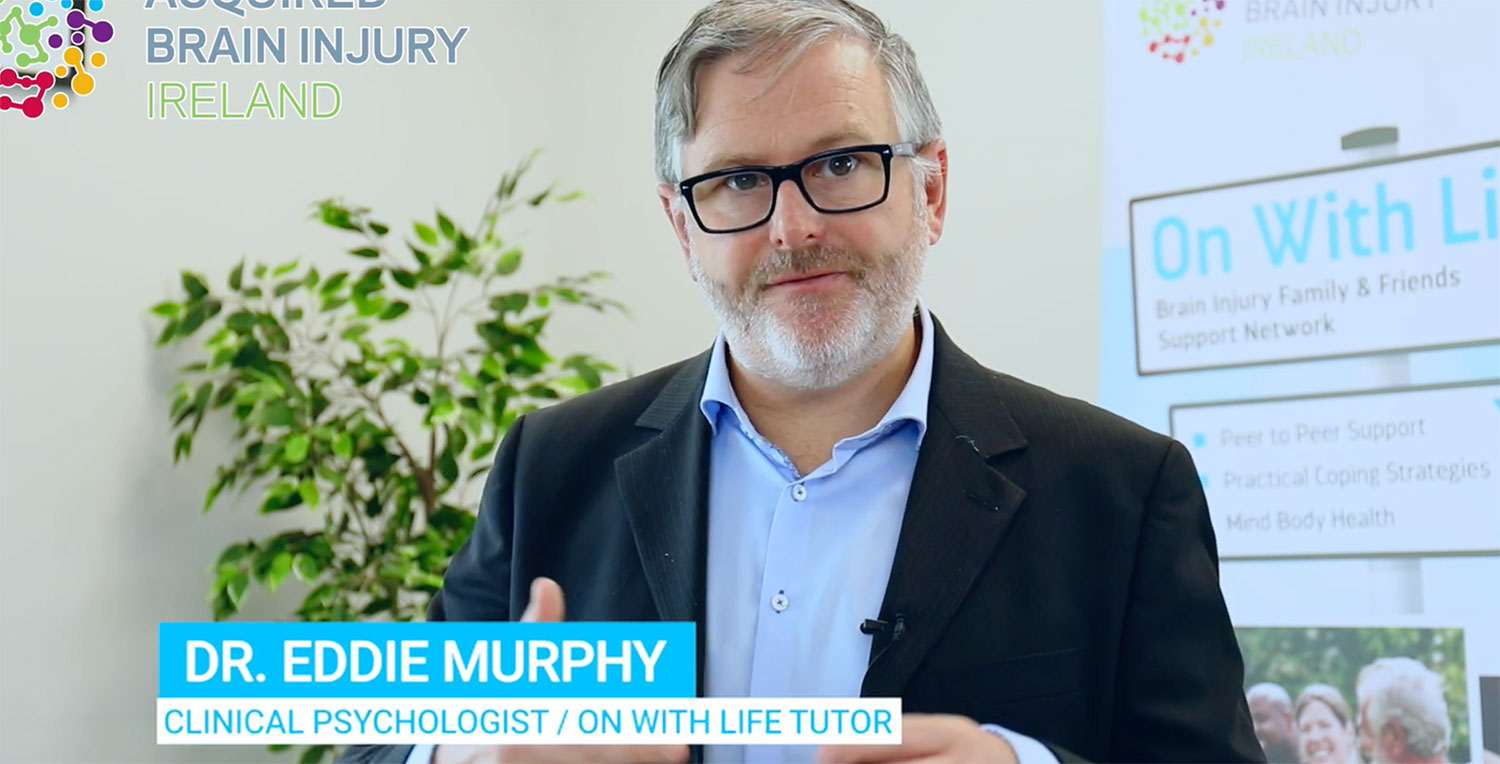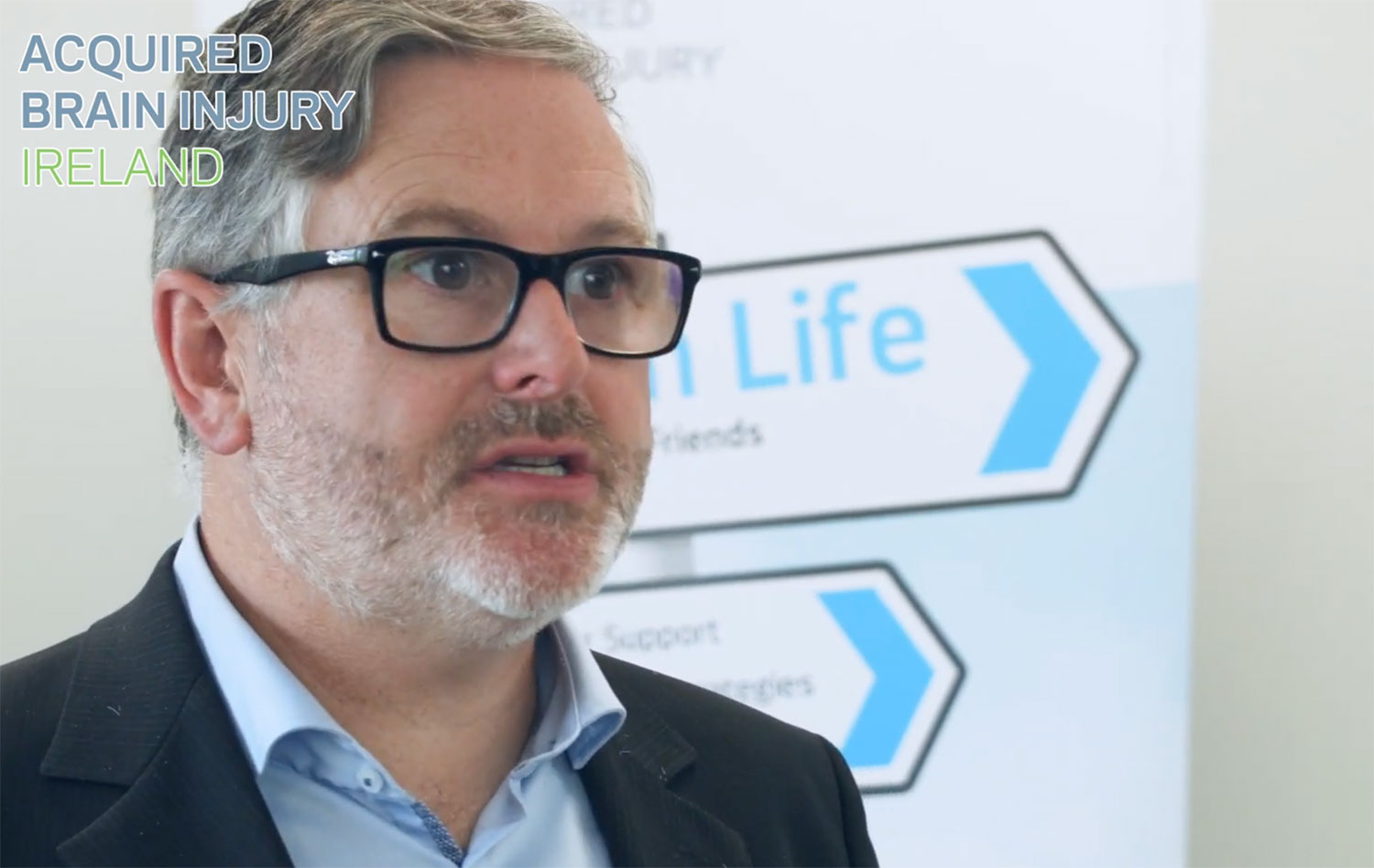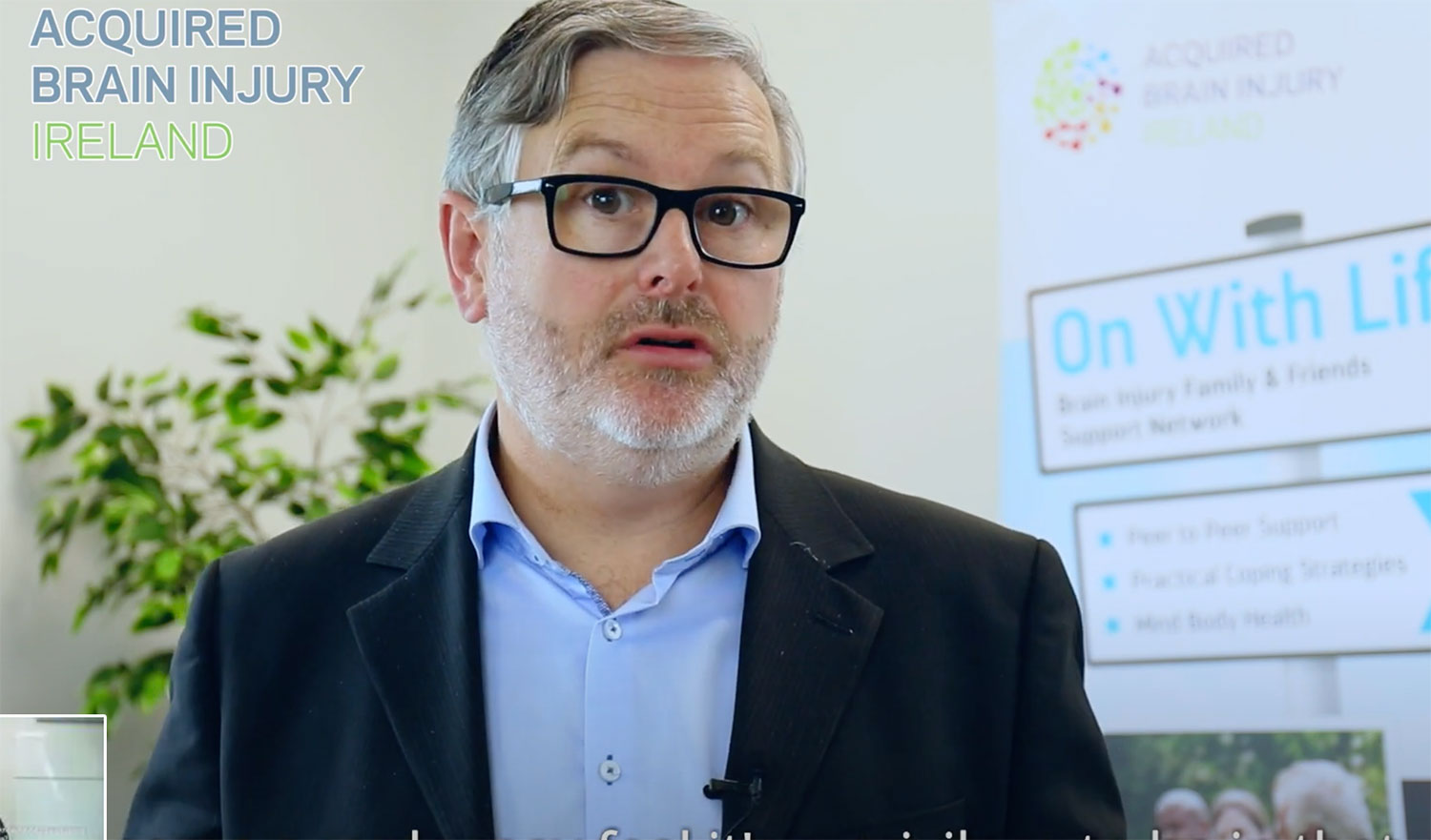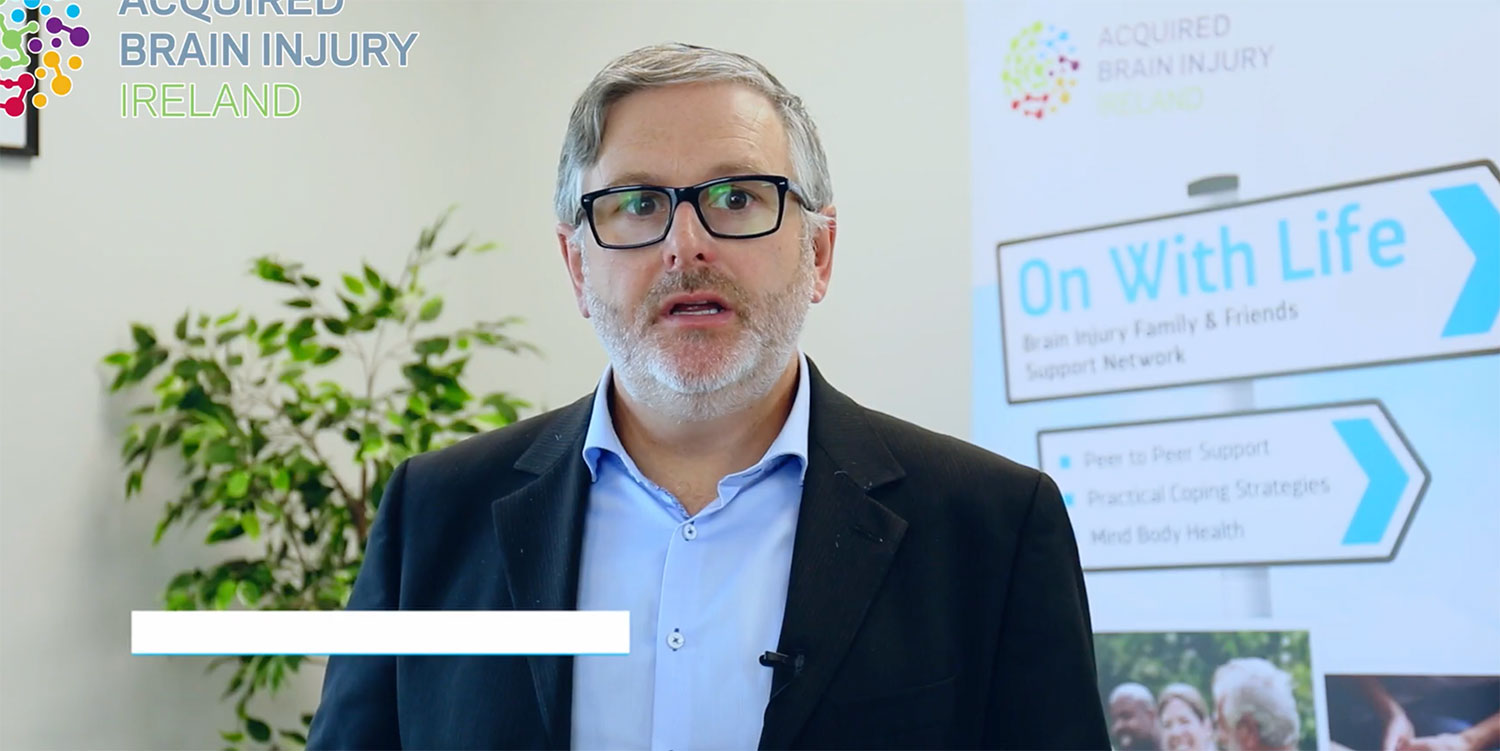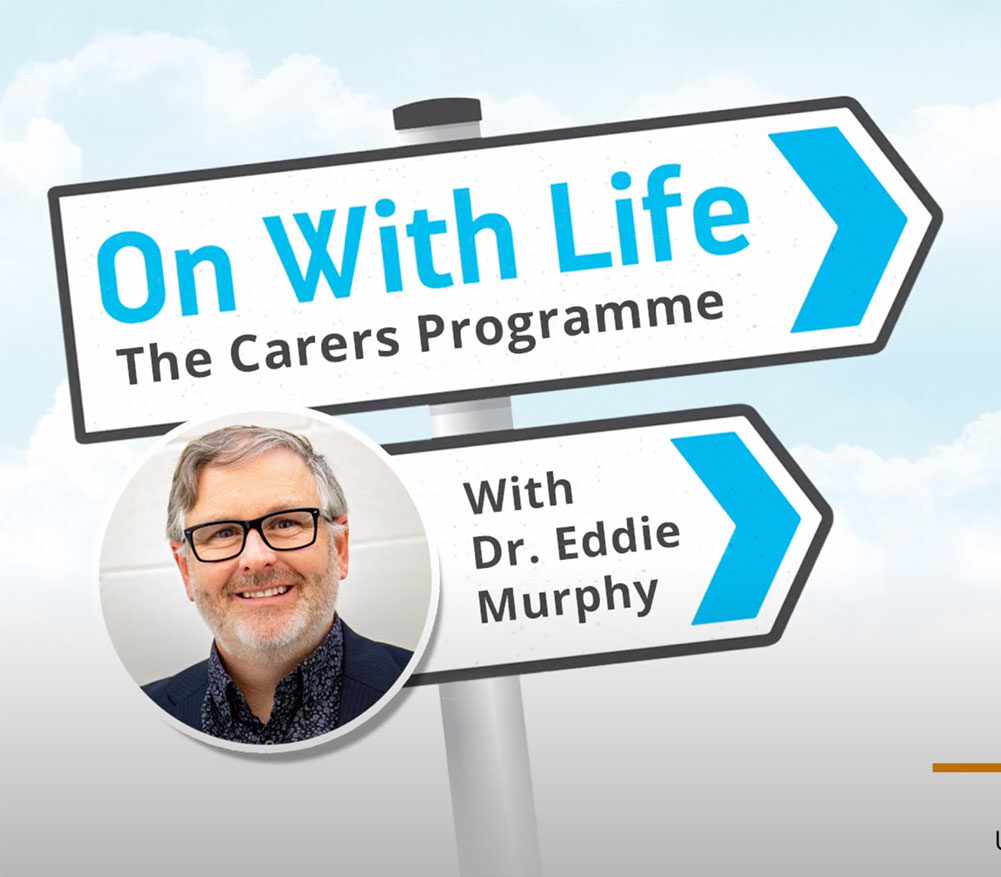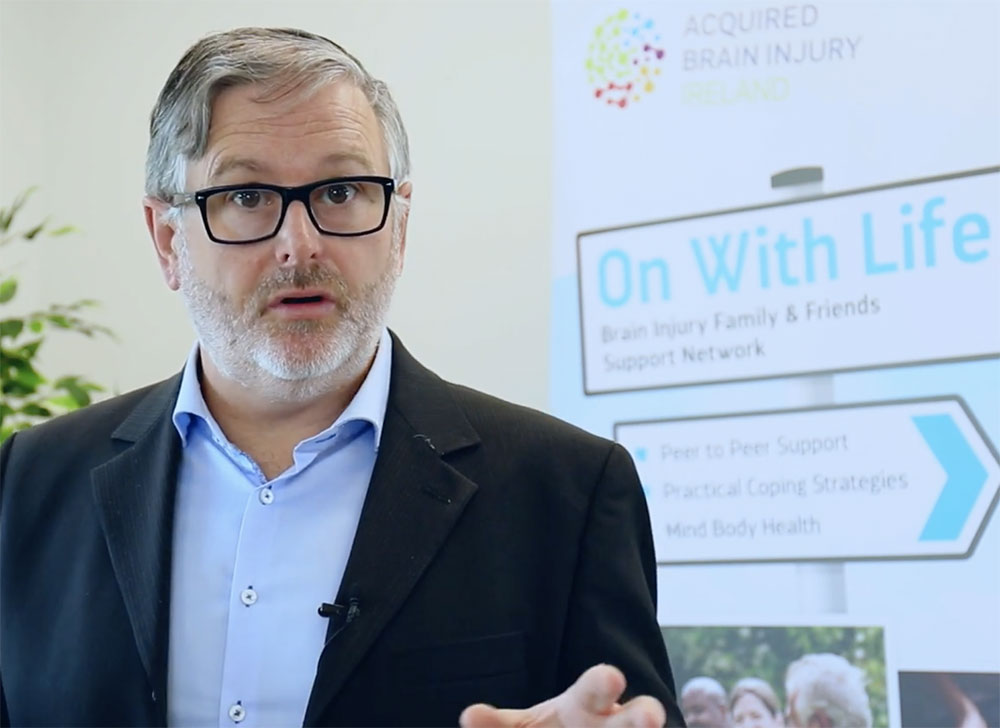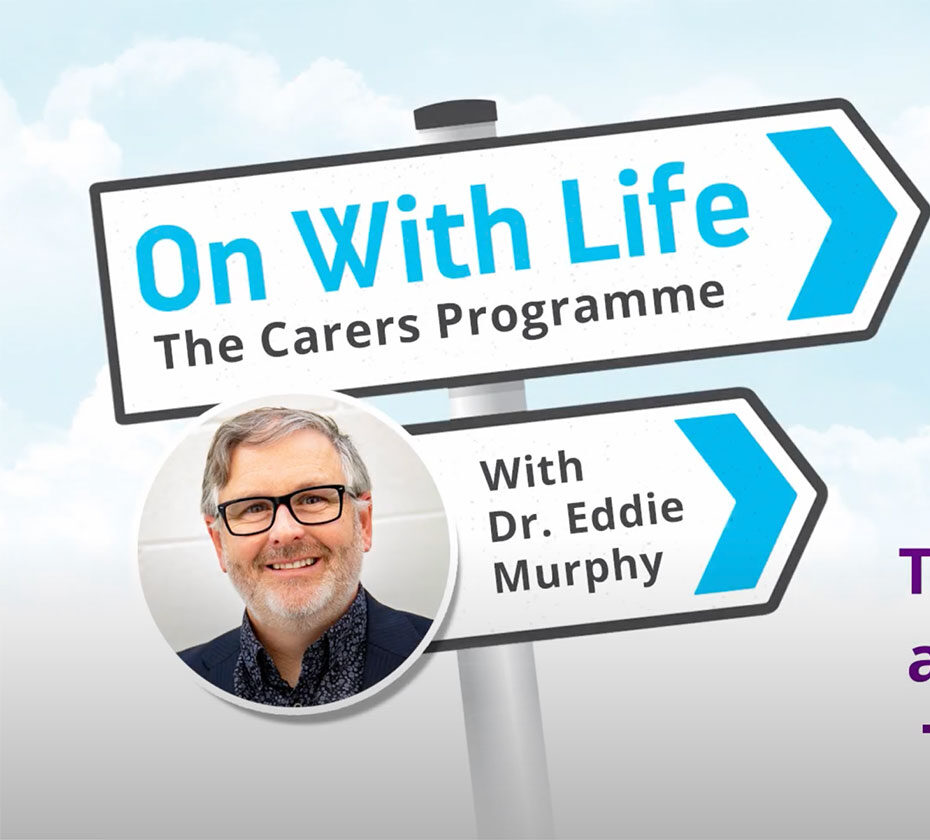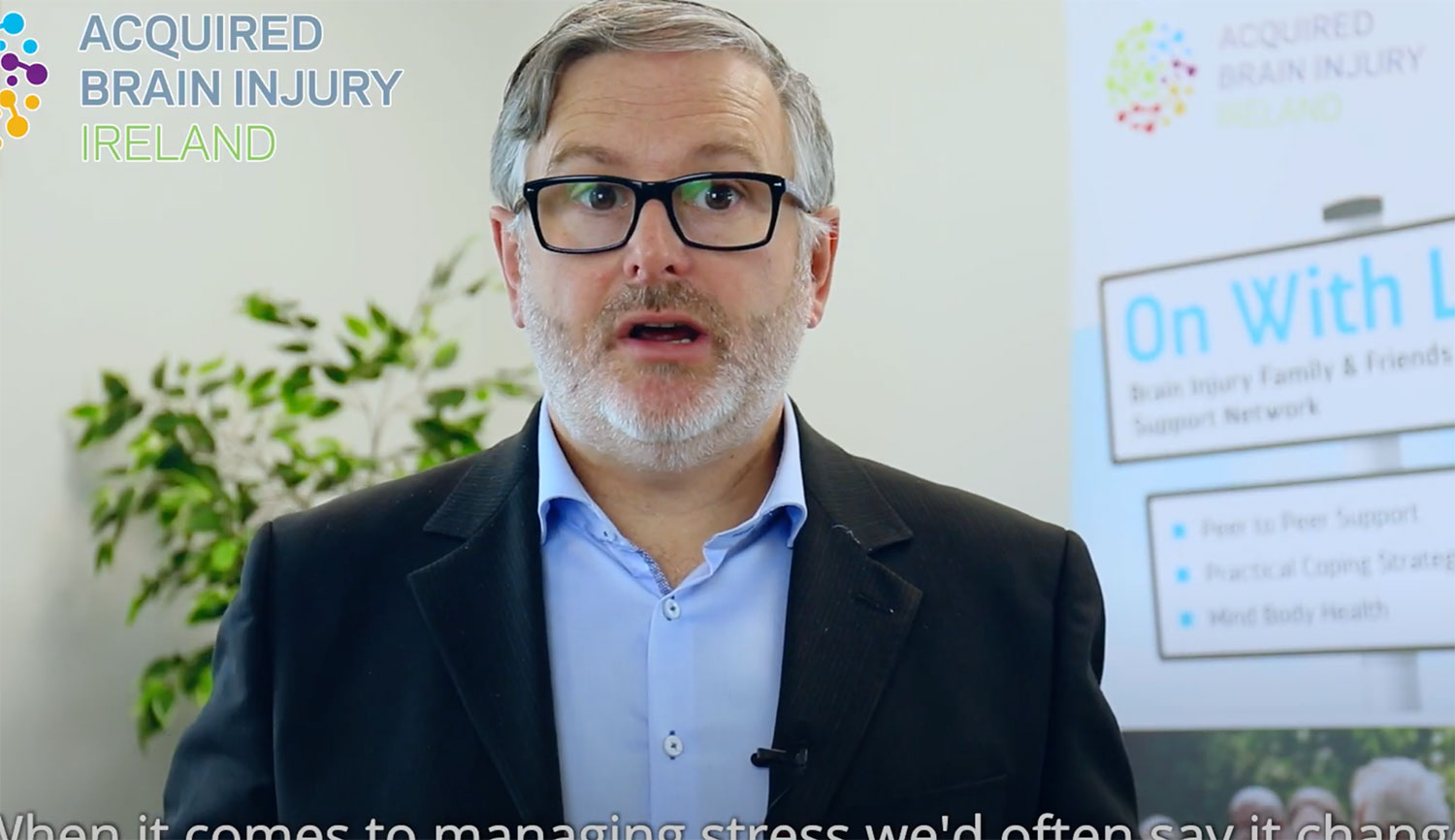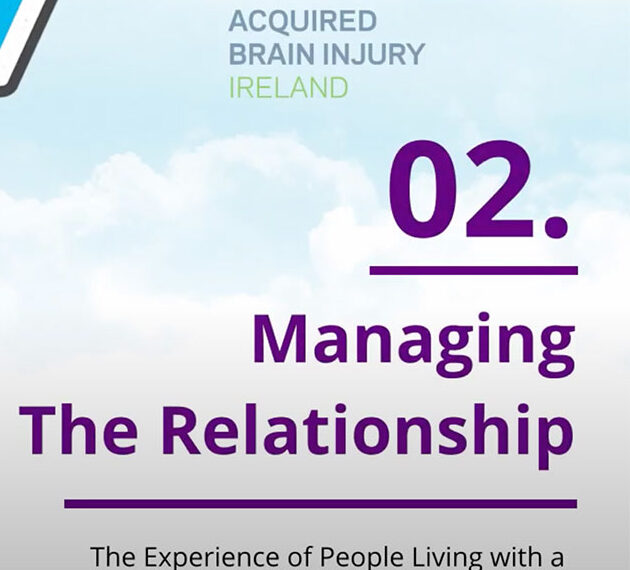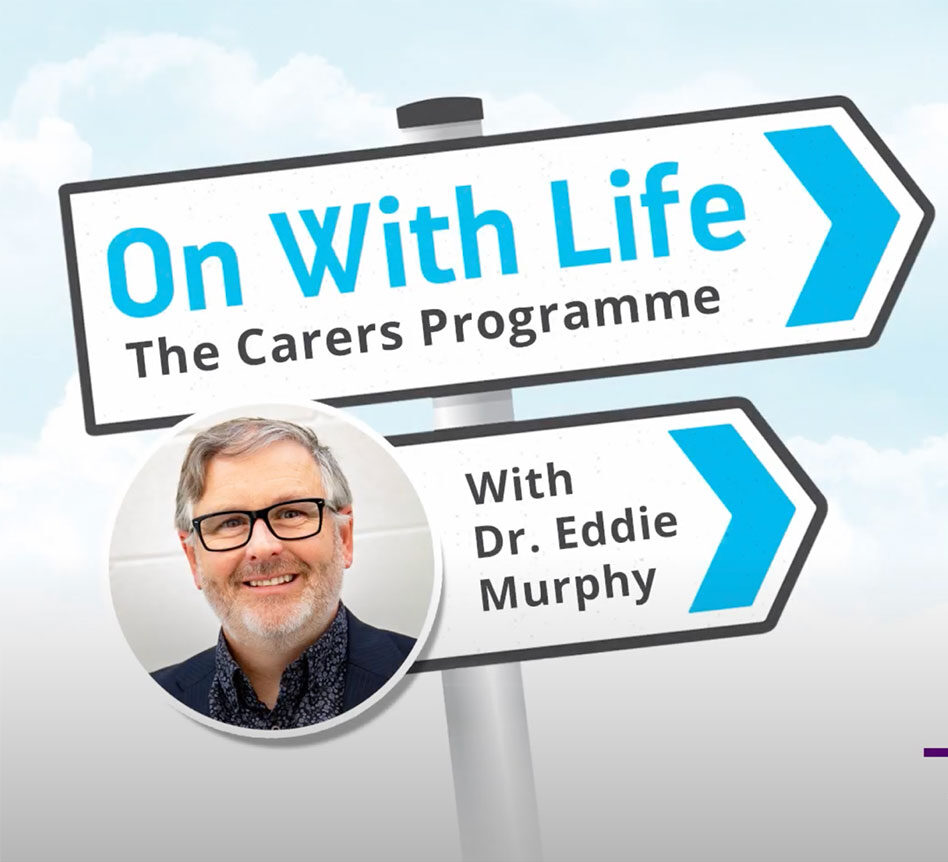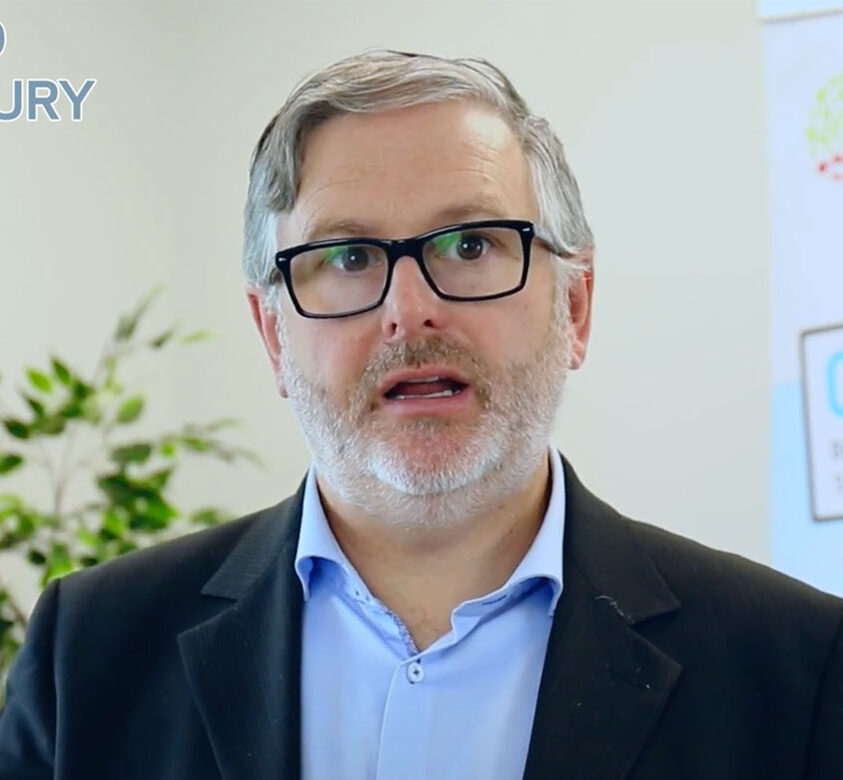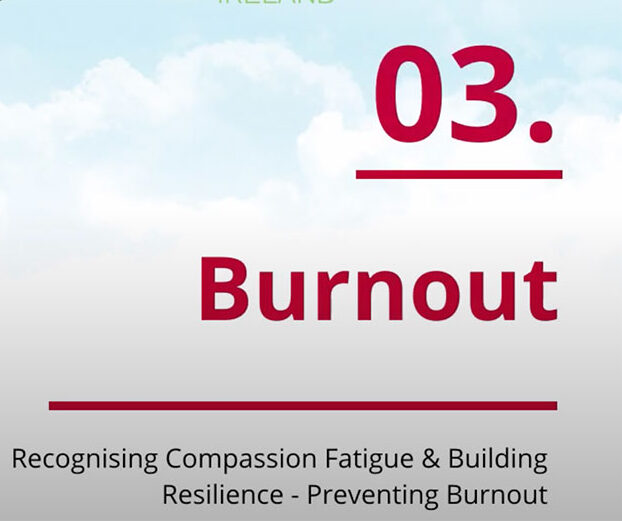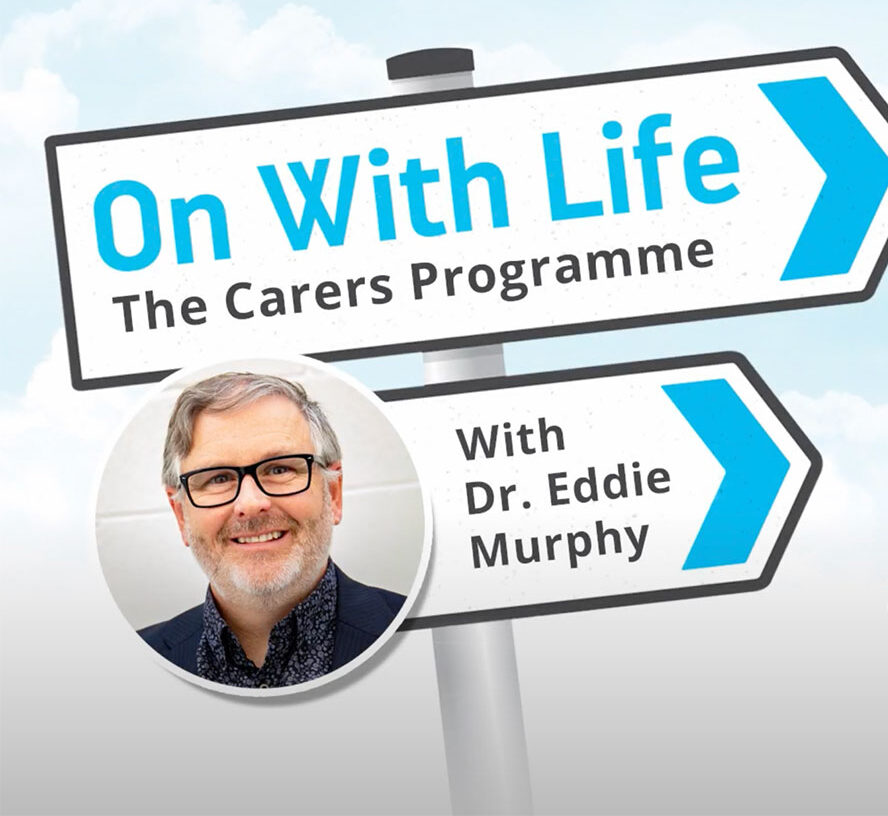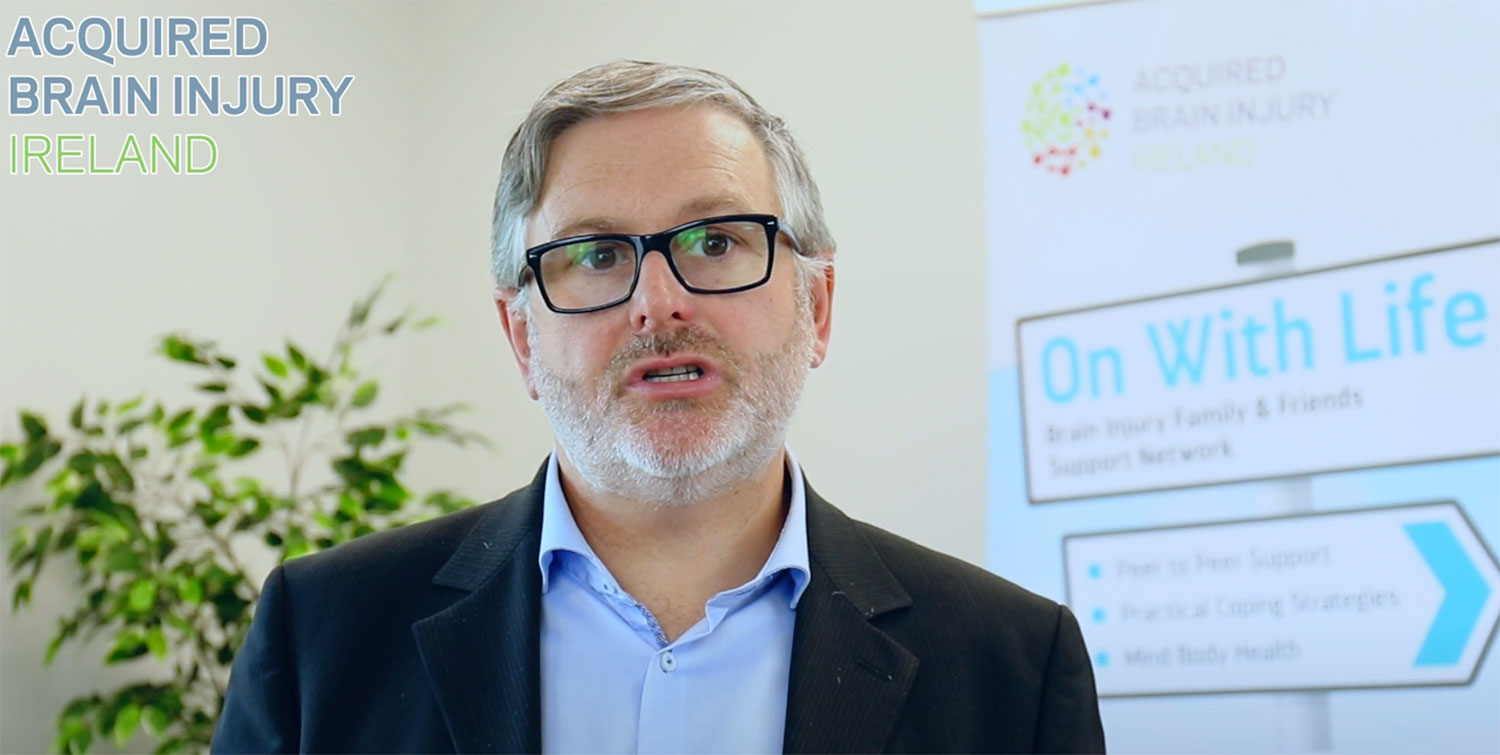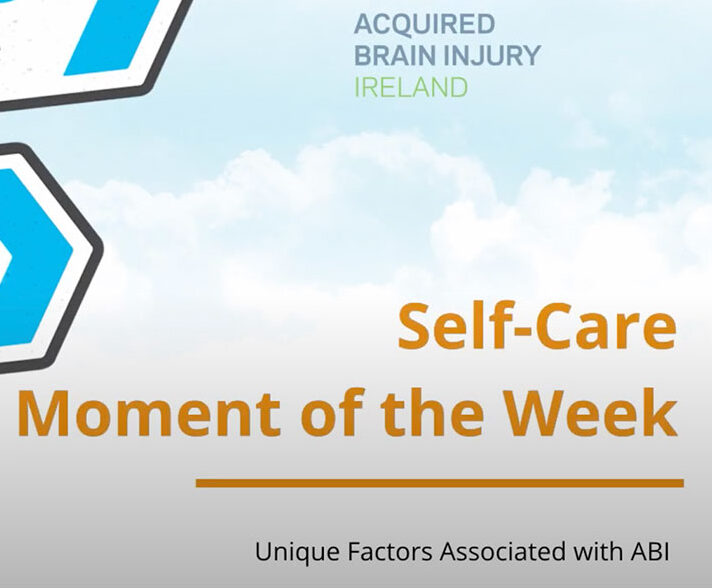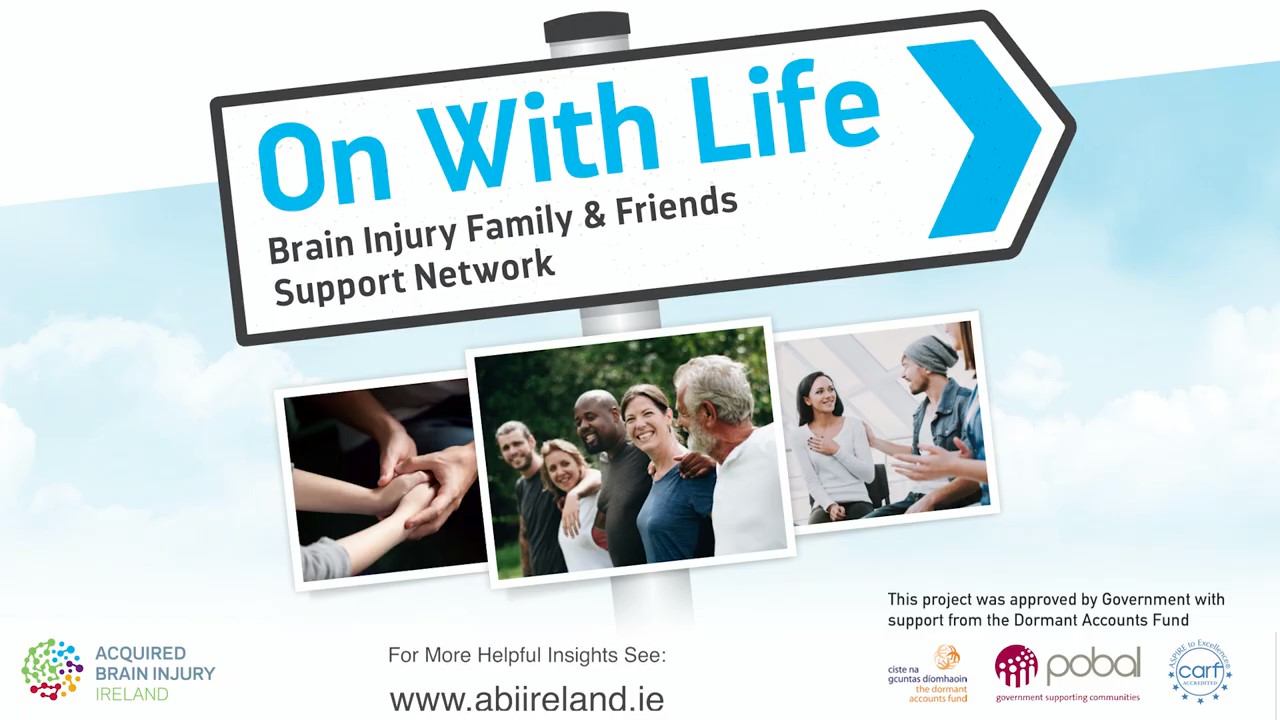At Home
If you are at home, or about to take your loved one home from hospital, you may find the information on this page particularly helpful. It includes videos from our Practical Toolkit for Carers, created together with Dr Eddie Murphy – Clinical Psychologist, Author and Mental Health Advocate. The videos provide guidance, tips and information on how to stay emotionally and physically healthy in your caring role.
The Initial Change
Returning home after a hospital stay is a new stage on the brain injury journey, both for the person and their family. It is normal to feel anxious and have lots of questions at this time: How will it all go? Will you have enough support? Is there enough money? How will you manage the children?
At this stage, families sometimes also speak about the disconnection between the hospital and the home. They describe having a lack of information and support, an absence of support services, and confusion around how to access them. Unfortunately, for some, rehabilitation services for brain injury survivors are dependent on where they live.
While these are real challenges, having a good discharge plan in place before your loved one leaves hospital may help address some of the issues. If you have questions, discuss them with the professionals you may be linked in with: Occupational Therapists, Physiotherapists, Public Health Nurses, or your Case Manager.
In this video, Dr Mark Holloway describes the unique experience of families living with brain injury, how families can get the best from the professionals and services available to them, and what can support them along their journey.
Support Groups for Families and Carers
No matter where you are on your journey with acquired brain injury, if you feel ‘stuck’ and continue to have strong emotions such as frustration, anger, regret or, guilt, we invite you to take a step back and get support.
Our On With Life Programme support groups provide an opportunity to talk through your feelings in a space that’s away from your friends. This is a network in which you can really go into the detail of all you have experienced. It is in this process that a light comes in and a shift happens.
Support groups are available online or in person, facilitated by members of our skilled team. If you are interested in learning more about groups available in your area, please register your details with Dolores Gallagher, On With Life Programme Facilitator.
The experience of living with someone with an acquired brain injury
Living with or caring for someone with an acquired brain injury may mean a change in your role as a parent, partner, sibling, or as a child. You may notice a change in your stress and energy levels. You might also experience challenges with fatigue and managing your own emotions.
As you navigate these changes and your new environment, we encourage you to make use of the Self Care resources that are offered to you. Try to build self-care moments into your life, and seek to recognise when you may be at risk of becoming overwhelmed.
In one of his opening Toolkit videos, Dr Eddie Murphy speaks about the personal impact of brain injury on the family.
A Family Affair
In this video, Dr Eddie Murphy describes acquired brain injury as an “unwanted guest” in your home. Acquired brain injury is a family affair, and it may create a sense of loss and grief in your relationship with your loved one.
This can be uncomfortable and difficult to discuss, but difficult topics can be explored and, when they are, we “shine a light into this dark corner” of living with someone with a brain injury. With support, it can be possible to find your way back to your previous relationship.
On With Life Programme
for Families and Carers
One means of support may be through our On With Life Programme for Families and Carers – a free, nationwide service and support network available to anyone living with or caring for someone with an acquired brain injury.
The Impact on Children
Children, even when very young, can sense when something is wrong. Following a brain injury, they may be upset or embarrassed about the way their Mum or Dad, brother or sister, looks and behaves. Every child will have a different way of coping.
Just like adults, children will need time to adjust to the new situation they find themselves in. We encourage you to allow them that time. They may find it difficult to have lost the attention they were used to having. They may be annoyed that the life they know has been interrupted. You can help your child understand that it’s normal to feel the full range of emotions: sad, angry, fearful and happy.
The experience of living with a loved one with an acquired brain injury can also bring out the best in both adults and children. They can show a level of caring and resilience that you didn’t expect.
If your partner has had a brain injury and you have young children, you may find Dr Mark Holloway’s video about ‘Supporting the Parent with an Acquired Brain Injury’ useful.
Our Guide Book for Carers
Our Guide Book for Carers provides information, guidance and tips to those caring for a loved one with an acquired brain injury, including advice on supporting children to cope.
Personality Change
The brain is the key to our personality, our mannerisms, and how we form our relationships with others. A brain injury can affect those characteristics, and these changes often present a challenge to caregivers.
It can be upsetting if there has been a change in the personality of your family member and this upset is normal. You can find yourself conflicted, asking how you and your family can connect with this new person, or if there is a part of the old person that you can still connect with now.
In this video, Dr Eddie Murphy describes this conflict and how to cope with personality changes in your loved one after brain injury.
Strong Emotions
When someone has a brain injury, their emotions can become intensified. They may become more angry or irritable than before. Their ability to plan, their motivation and sense of themselves can be affected. They may also be more focused on single tasks or topics at any time and find it difficult to jump easily from one to another.
This can all lead to huge frustration on the part of the person injured and, as the primary caregiver, you may find yourself at the brunt of that frustration. Remember, as a family member or carer you are not there to absorb everything thrown at you. It is ok to say no, and choose the moments to tell your loved one if their reactions or responses are not acceptable.
Dr Eddie Murphy explores strategies and tools to support you in this process, including how to build your assertiveness.
Behaviours that Challenge
Challenging behaviours can emerge after a brain injury. They can be difficult to address and are often not spoken about, for example, sudden outbursts, or physical or sexually inappropriate behavior.
A key to managing these behaviours is to recognise the triggers that cause them, what is happening during the behaviour, and what are the results.
In this video, Dr Eddie Murphy looks at some of the strategies and tools that can help you to handle and navigate those challenging behaviours at home.
Fatigue and Motivation
Acquired brain injury is like an iceberg. There are certain impacts we can see on the outside, but there are many other factors going on beneath the surface. As a family member or carer, it can be important and helpful to recognise those ‘hidden’ factors.
Chronic fatigue and an absence of motivation are very common features of an acquired brain injury. Fatigue management is something that needs to be planned for, for both the Carer and the person with acquired brain injury. This will help ensure that the person injured, and you as Carer, are not overdoing it. Pacing yourselves will promote recovery.
Here, Dr Eddie Murphy discusses what can happen when a person is fatigued, including frustration, intolerance, low mood and agitation. He also looks at how we might recognise if a person is over fatigued, and what you can do to support your own motivation?
Glen's Story
Glen is a brain injury survivor who offers a first-person account of fatigue in this short podcast, in conversation with Principal Clinical Psychologist, Dr Brian McClean.
Intimate Relationships
A real concern about acquired brain injury is its impact on intimate relationships.
When one person who was in an intimate relationship acquires a brain injury, they can lose the connection and intimacy they had with their partner and vice versa. This can be experienced as a loss on both sides and can be extremely difficult. The person injured may experience desire and sexual frustration, while the carer may have moved on from that phase in their relationship.
This loss may be permanent, or it may be transitionary. It is most important to put strategies in place to support both people. This can be managed together with a Psychologist or Rehabilitation Assistant. The Sexual Wellbeing Service in the National Rehabilitation Hospital, Dun Laoghaire, also offers specialist sex therapy, counselling and advice to people affected by a brain injury. For information, phone +353 1 235 5288.
The Carer's Role
The risk of over caring
Can you over care? Supporting independence sometimes means pushing your loved one to do things for themselves, even if you want to do all you can for your family member.
Where you can, try to share decision-making just as you would have done prior to the brain injury. Use technology or any means you can to communicate with your family member and include them.
Managing Stress
Carers experience far more stress than the average person. Stress impacts us physically. By the way we carry ourselves we can have aches and pains. It can cause stress related illnesses, from ulcers to higher blood pressure. Stress also impacts on our mental health, and can lead to reduced concentration and more negative thinking.
Are you being kind to yourself? Just as the person you are caring for has a care plan, you need a plan or strategy to manage stress and prevent burn out.
Burn out
Sometimes, feeling stressed is described as your home being on fire. Burn Out is when your house is burned down: it is a state of exhaustion, a depletion of energy and resources.
If this reflects how you feel, it is vitally important to seek professional support where you can, for example from a Social Worker, Psychologist, Counsellor, your GP, or a member of the Acquired Brain Injury Ireland Rehabilitation Assistant team. Family and friends can also provide support.
The first step on working through a state of Burn Out is recognition – acknowledging where you are and reaching out to those who can help.
Compassion Fatigue
“What about you – how are you doing?” The family member who is providing care can be forgotten about. We are very fond of saying: “it’s grand”. Inside, you might be exhausted. Perhaps you feel that the progression hasn’t happened as quickly as it could. You might even feel responsible for your loved one’s progress.
Recovery can be ‘stuck’. That’s the nature of brain injury: going two steps forward very slowly and one step back; two steps forward, one step back. Sometimes the greatest challenge is living with a level of uncertainty. The longer things go on, you may find that you’re left more and more alone with this new role. As a result, you can begin to experience compassion fatigue.
As Dr Eddie Murphy says, you can just be “bloody tired of caring, so tired, so frustrated… As a carer you can’t have all the answers and you are not trained professionals.”
Promoting Resilience
Resilience is our ability to bounce back after adversity. As you are a family member providing care to a loved one who has been through an acquired brain injury, and since you are taking time to read this, you are a resilient person.
How can you enhance and nurture that resilience?
The quickest way to protect and grow your resilience is to maximise sleep at night and improve its quality and quantity. This is critically important for family members in a caring role.
Dr Eddie Murphy discusses some other strategies for recharging your batteries and reducing stress.
Physical Self Care
Having meaning, passion and pleasure in your life might sound like a faraway goal now, but it starts with physical self care.
Physical self care is critically important for any family member or carer. The physical benefits of exercise are incredible. Managing your sleep well is the quickest way to build your resilience and protect your wellbeing.
Emotional Self Care
The emotional impact of an acquired brain injury can be enormous for the individual, but also for their family, friends and carers. Taking time to think and talk about the emotional load is really important.
We encourage you to check in with yourself. Ask, are you making time for your own self care? Is there someone you can talk to about your situation, including all the challenges you face?
If you have the opportunity to speak with someone professionally, in a counselling or therapy role, you can offload some of your concerns and go back to providing good quality care with your loved one.
Holistic Supports for
Families and Carers
Our On With Life Programme for Families and Carers can help you find moments of physical and emotional self care through regular free sessions in yoga, mindfulness and music therapy, as well as through peer-to-peer support groups.
Communication and Planning
“If you bring in and hold negative thoughts and emotions your sense of wellbeing can be eroded, and your mood is affected. You have a right to say no and be assertive to your need.” (Dr Eddie Murphy).
Communication and planning are cornerstones of being a carer. This applies to good self care too. It is so important to have clear, ongoing communication between you and your family member, the rest of your family, and the professional care givers involved.
As you and your family move through your journey after brain injury, you will find that people will be at different stages. That’s why having a willingness to listen, learn and ask is also important. Having a network of peers who are also living with or caring for someone with a brain injury can be very valuable, creating space and time for sharing and learning from real life experiences.
Self Care Tools and Strategies
In the final section of his Toolkit for families and carers, Dr Eddie Murphy offers tools and strategies to help you build resilience and look after your own mental health and wellbeing. We have included some of his self care moments alongside resources to support you in your role.
Caring for the Carer
This tip sheet from our Guide Book for Carers offers tips for recognising stress, problem solving, and accepting help.
Keeping a Diary
Taking the time to write down your thoughts can give you a break from the demands of your caring responsibilities.
Help Strategies for Carers
This short document explores how to ask for and accept help, as well as practice self care strategies.
Relaxation Techniques
Find some ideas for breathing exercises, muscle relaxation and mindful meditation to reduce stress and promote wellbeing.

